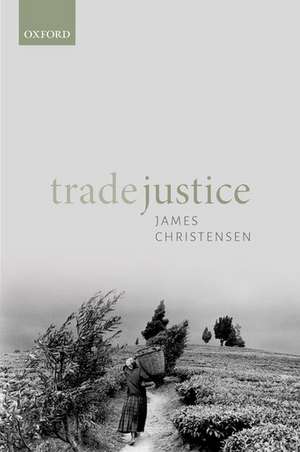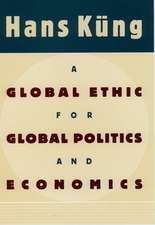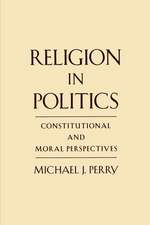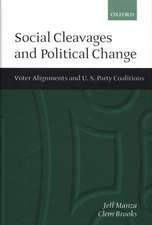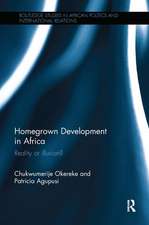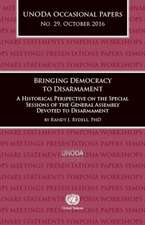Trade Justice
Autor James Christensenen Limba Engleză Hardback – 16 noi 2017
Preț: 466.81 lei
Preț vechi: 645.91 lei
-28% Nou
Puncte Express: 700
Preț estimativ în valută:
89.34€ • 93.02$ • 75.50£
89.34€ • 93.02$ • 75.50£
Carte tipărită la comandă
Livrare economică 27 februarie-05 martie
Preluare comenzi: 021 569.72.76
Specificații
ISBN-13: 9780198810353
ISBN-10: 0198810350
Pagini: 172
Dimensiuni: 165 x 241 x 16 mm
Greutate: 0.45 kg
Editura: OUP OXFORD
Colecția OUP Oxford
Locul publicării:Oxford, United Kingdom
ISBN-10: 0198810350
Pagini: 172
Dimensiuni: 165 x 241 x 16 mm
Greutate: 0.45 kg
Editura: OUP OXFORD
Colecția OUP Oxford
Locul publicării:Oxford, United Kingdom
Recenzii
This book represents a significant step forwards in debates on trade justice. Christensen wrestles with tremendously difficult moral questions how should trade be restricted, if ever? how should its proceeds be distributed? - and handles them with impressive clarity and acuity. His (often surprising) conclusions will be of interest to both scholars and policy-makers.
Whilst concerned citizens have campaigned for fair trade, political philosophers have (with some distinguished exceptions) not engaged in ethical analyses of international trade. In this excellent work, James Christensen addresses this lacuna. Trade Justice provides a sophisticated and illuminating normative evaluation of many aspects of international trade. Combining philosophical argument with empirical evidence, Christensen develops a plausible account of when trade may be permissibly restricted, how the benefits of trade should be distributed, and what role equality should play in accounts of trade justice.
James Christensens Trade Justice probes a wide array of issues related to international trade, many of which have been overlooked by political theorists Christensens text is refreshingly pragmatic. It takes the world as it is and asks where justice and injustice lie in this nonideal landscape. For a work in political philosophy, it is admirably conversant with the relevant economics and social science research. Future normative inquiry into international trade would do well to begin here [This is a] well argued and largely persuasive book. Christensen deserves praise for his attentiveness to often-neglected problems as well as for his generally innovative approach.
Whilst concerned citizens have campaigned for fair trade, political philosophers have (with some distinguished exceptions) not engaged in ethical analyses of international trade. In this excellent work, James Christensen addresses this lacuna. Trade Justice provides a sophisticated and illuminating normative evaluation of many aspects of international trade. Combining philosophical argument with empirical evidence, Christensen develops a plausible account of when trade may be permissibly restricted, how the benefits of trade should be distributed, and what role equality should play in accounts of trade justice.
James Christensens Trade Justice probes a wide array of issues related to international trade, many of which have been overlooked by political theorists Christensens text is refreshingly pragmatic. It takes the world as it is and asks where justice and injustice lie in this nonideal landscape. For a work in political philosophy, it is admirably conversant with the relevant economics and social science research. Future normative inquiry into international trade would do well to begin here [This is a] well argued and largely persuasive book. Christensen deserves praise for his attentiveness to often-neglected problems as well as for his generally innovative approach.
Notă biografică
James Christensen is a Lecturer in Political Theory at the University of Essex. He completed his doctoral research at the University of Oxford.
